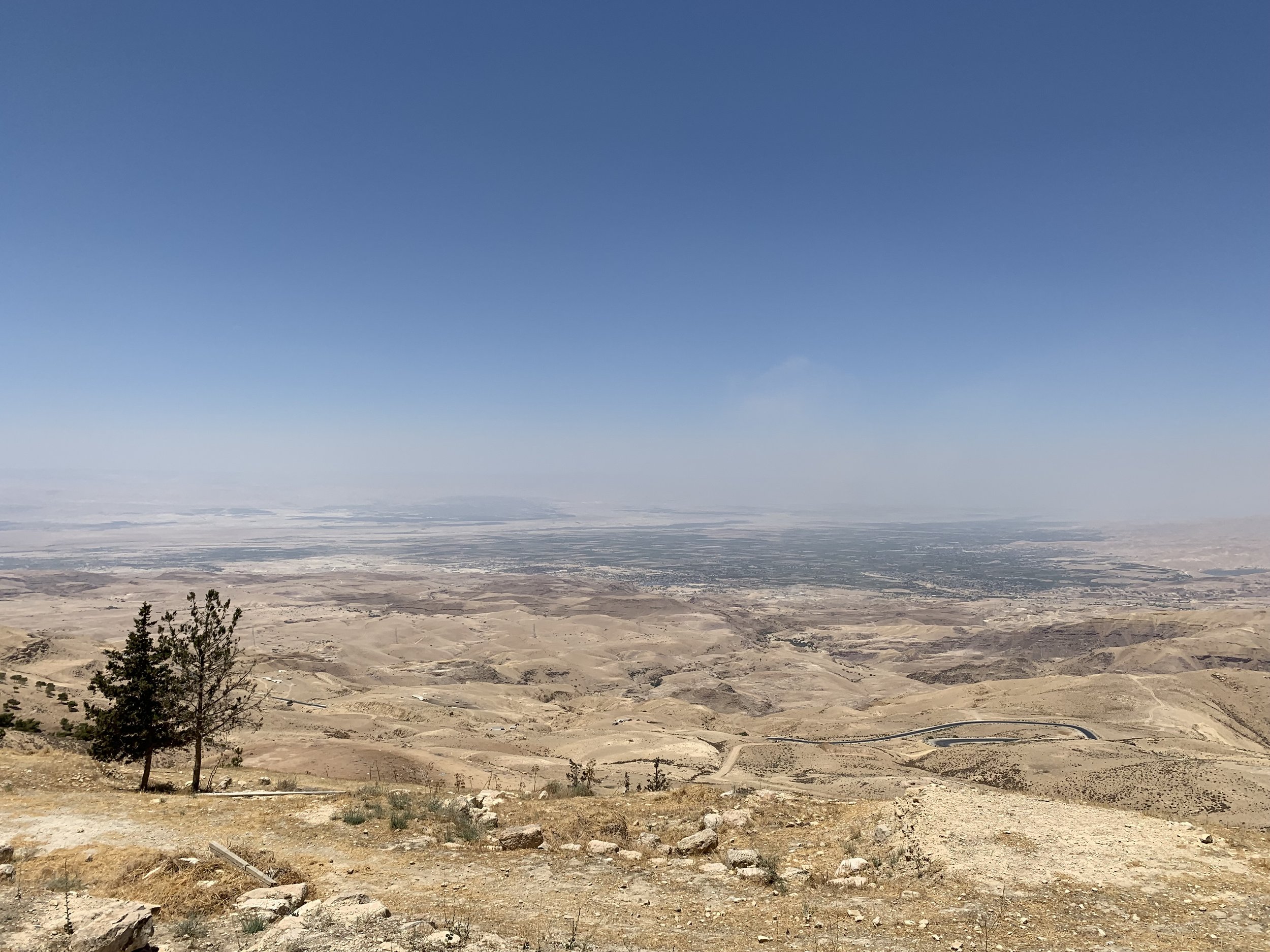Readings for today: Numbers 33-36
Many of us remember the famous words of Captain Kirk from the USS Enterprise as they traveled through uncharted space. “Space, the final frontier. These are the voyages of the starship Enterprise. Its 5-year mission: to explore strange new worlds, to seek out new life and new civilizations, to boldly go where no man has gone before.” I wonder if Moses had a similar internal monologue going as he led Israel through all kinds of uncharted, new territory on their journey to the Promised Land?
I freely admit I used to pass over the chapters we read today. The names and places listed in these verses simply didn’t mean much to me. The only interesting story is the fascinating one about the daughters of Zelophehad and their inheritance. Possibly one of the earliest examples from the ancient world where the Bible begins challenging cultural and patriarchal norms by expanding the rights of women. However, a few years ago, I was able to visit the Holy Land. My wife and I traveled for two weeks through modern-day Israel and Jordan. As we spent a week in Jordan, it dawned on me that we were traveling over the same territory as ancient Israel. I found myself standing in the ancient Biblical kingdoms of Edom, Ammon, and Moab. I was able to catch a glimpse of what the Israelites experienced and it changed everything for me. The verses we read today came alive in new and fresh ways because I actually had been to some of these places.
For example, Wadi Rum is a desert valley located in the southernmost part of Jordan. It was once part of the ancient kingdoms of Midian and Edom. It is a trackless wasteland with little to no water. Movies like The Martian are filmed there because of how it resembles the surface of the planet Mars. One can easily see how Israel, moving through this territory, would have become discouraged. Petra, the capital of ancient Edom, is located just to the north. The Nabateans used this valley as a trade route and it’s entirely possible the people of Israel used these same routes as they traveled north towards Jericho and the Promised Land.
Jabal Haroun is the traditional site revered by Christians as Mount Hor where Aaron died and was buried. You can reach his shrine today via an 11km trail from the center of Petra. You can also catch a glimpse of Jabal Haroun from the tallest mountains in Petra. I remember standing on top of a “high place” in Petra on a clear day and seeing the shrine across the valley. I tried to imagine Moses and Aaron in their very old age making their way up that mountain so Aaron could die according to the Lord’s command. It couldn’t have been easy.
We finished our week in Jordan on top of Mount Nebo. The very mountain Moses ascends to look out over the Promised Land before he died. Again, we had a clear day and one could see all the way to Jericho. The plains mentioned in the Bible stretched out before us. We saw the Dead Sea and the Jordan River valley. At night, I was told, one could even see the lights of Jerusalem in the Judean hills. It was here that the mantle of leadership passed from Moses to Joshua and it is considered a sacred place for the three Abrahamic religions of Judaism, Christianity, and Islam.
Like ancient Israel, all of us can list names and places that hold special significance in our spiritual journey. Sacred places where the Lord met us along the way. The journey Israel undertook wasn’t just physical. It wasn’t just about getting from one spot to another. It was formative culturally and spiritually. It’s what shaped them into a nation. They underwent a transformation from a rag-tag bunch of escaped slaves to a powerful nation united by a common law and common faith. This is what empowers them to enter the Promised Land and claim the inheritance God had given them.
Readings for tomorrow: Deuteronomy 1-3





